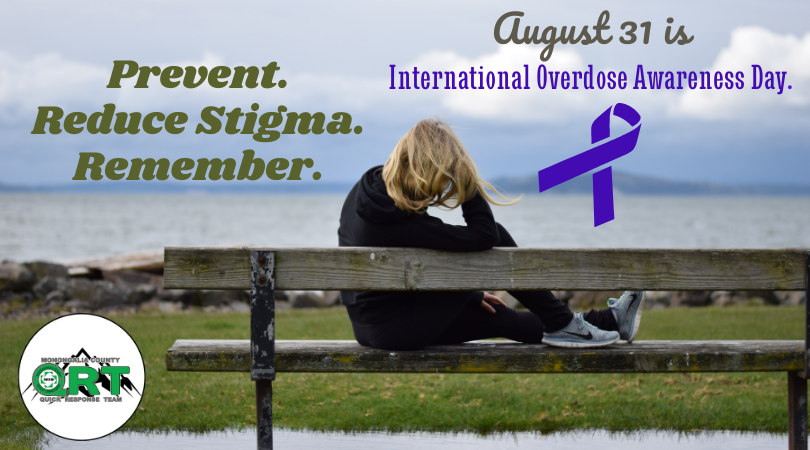There is no shame in seeking help for substance use disorder

Aug. 31, 2021
By Katie Minor
For years, West Virginia has been in the top spot for opioid related deaths in the country. But year after year, people who have dedicated their lives to ending opioid related deaths have shown that recovery is possible and there is no shame in seeking help.
Jon Dower is one of those people. He is the executive director of West Virginia Sober Living, as well as a certified intervention professional and recovery coach. He spoke about what he believes to be the largest social issue of this generation: substance misuse.
Substance use disorder (SUD) affects millions of Americans and is widely stigmatized. “This is one of the very few populations on Earth that are judged for the worst day of their lives,” Dower said. “I would ask an individual that’s never had that experience with SUD — if they were judged by the worst day they’ve ever had, how difficult would that be?”
Aug. 31 is International Overdose Awareness Day (IOAD), a global campaign dedicated to ending overdose, remembering those who died from overdose and ending the harmful stigma around SUD.
“Raising awareness can inform policy and create a collaborative solution that involves the layers it takes to address this problem,” Dower said in light of IOAD. “From the federal government to the state to the local community, it’s going to take all hands on deck.”
One of the resources of our local community is Monongalia County’s Quick Response Team (QRT). Funded through grants obtained by Monongalia County Health Department, the QRT is a collaboration among first responders, public health, peer recovery coaches and other partners dedicated to providing immediate and longer term help to those struggling with substance abuse.
Dower is also a member of the QRT, which he believes is especially vital because of the way it brings the community together. “We have individuals who employ people in recovery. We have people who help families. We have people in a faith-based community. We have public health employees, EMS and police,” Dower said. By bringing together different specialties, the QRT allows each specialty to add immense value to the mission of ending overdose.
One of the key functions of the QRT is the distribution of naloxone and offering naloxone training to the public. Naloxone, usually in the form of the brand Narcan, is a medicine that rapidly reverses opioid overdose by kicking the opioid molecules off the receptors in the brain. It can be given as a nasal spray or as an easy injection, and anyone can do it.
“Naloxone is a life-saving drug. We can distribute it to vulnerable populations and their loved ones who might be at risk,” Dower said. “Furthermore, we distribute it to high risk areas in our community, from hotels to gas stations. A bystander can intervene and save someone’s life.”
Want to be one of those life-saving bystanders? The QRT always offers naloxone training, but Sept. 25 is West Virginia’s Save a Life Day, a day dedicated to distributing free naloxone to the public. Businesses all over the county will be participating in Save-a-Life day, including in rural areas. “We don’t want any disparity in where the resources are,” Dower said. From 10 a.m. to 5 p.m., volunteers will be at 13 locations offering free naloxone training, something that just takes a few minutes and could make the difference between life and death.
Overdose Awareness Day is a great time to reflect on what you can do to help end overdose, but it is also a time to remember those who have lost their lives to overdose. The grieving process for someone who has lost a loved one to overdose is sometimes subject to judgment and stigma.
The QRT sponsors a grief support group specifically for those who have lost someone because of substance misuse. The group meets on the first and third Mondays of every month at Sabra United Methodist Church from 7-8:30 p.m. Use the yellow Darst Street entrance.
If you or a loved one are struggling with substance misuse, know that there is no shame in seeking help with one of our many resources. This Overdose Awareness Day, everyone is encouraged to save lives.
Katie Minor is the public information office assistant at Monongalia County Health Department.